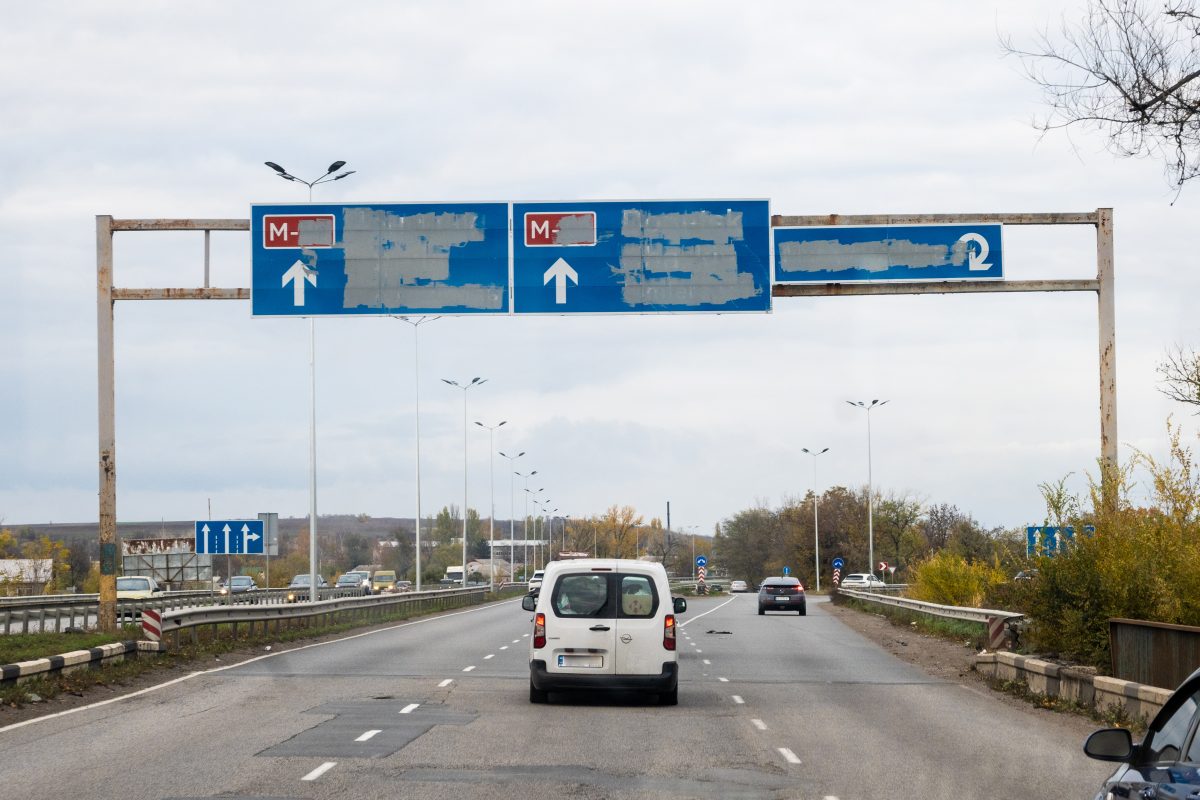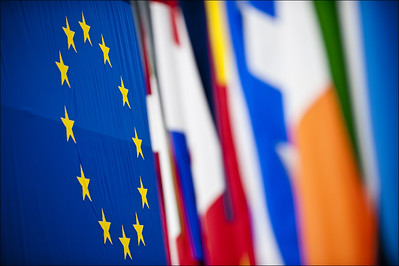Growing up in Ireland, the royal family seemed like a weird and archaic tradition that only existed to interrupt the newest episode of the Simpsons at Christmas and when one of them died. The queen wasn’t on our money or in our anthem, she was “over there.”
It was not until my 20s while living in Edinburgh that I understood how this family of rejected German nobility had impacted my life. While escorting my parents from the airport to the centre of Edinburgh, looking at the gorgeous sandstone buildings, the Princes Street gardens and monument after monument after monument, my father stopped in the street and said, “so this is what a city looks like if you’re loyal to the crown.”
The bluntness of the statement, typical of a man from Offaly (formerly King’s County, Ireland), illuminated the little quirks of existence at the periphery of London. Why did the Welsh language survive while Irish and Scots Gaelic suffered? Why did the smaller city of Belfast get all the industry while Dublin did not? Why is Glasgow so run down compared to Edinburgh? The royal family and the media’s presentation may seem absurd but it is the face of the UK, of its church, its empire and its economy. To be loyal to it is a proxy of being loyal to the state and to stand against it is to be left behind.
At the time of writing this, myself and every other poor soul poisoned by growing up on a cruel and poorly moderated internet, laugh at the idea of the queen entering “a new phase” and not being seen again until February. It’s even possible she’ll miss out on doing one of her duties, the Christmas speech. As a podcaster and comedian, I must begrudgingly respect the idea of speaking for roughly 10 minutes and calling it work.
But more importantly it allows us the time to imagine a world after Liz has died. Many people I know personally and respect from Ireland and the UK are indulging in the idea that she already has and because of the queen’s role as a load-bearing structure of the state and how the media operates in the UK, it’s not that crazy to think so.
The waiting republicans
There have always been stark differences between the media landscape of Ireland and the UK. Two similar markets, even sometimes the same paper, could handle the same situation very differently. In Ireland, the eastward expansion of the EU and the arrival of Poles and Lithuanians to our shores was almost a point of pride. A brief reprieve from the long historical trend of our sons and daughters leaving for New York and Sydney. Now, finally, we could be the golden city on the hill, there were jobs available and sure if any aul wan complained you could mention the laundry list of family members who emigrated for a better life to put them in their place. I even remember teenagers adopting the word sklep (Polish for shop) as a term for eastern European import shops where you could buy weird sweets and good sausage.
All of this is to emphasize how strange we in Ireland found the UK’s response to this same situation. While the Irish version of the tabloid The Sun was still running front page stories of celeb gossip, women giving birth to quadruplets or a man trying to have sex with a microwave lasagne, in the UK The Sun was doing everything short of calling for the death of every Romanian in England.
I’m not going to tell you that the Irish and our media was a paragon of anti-xenophobic excellence (certainly there was a fetishisation of a supposed perfect blonde Polish housewife during these years) but the sheer anger and hatred in British media towards a non problem was truly baffling to us.
This is one aspect of the larger strategy of the British press to showcase stories about issues that are not real, blown out of proportion or are of interest to a small columnist class and not to the public. A good example is The Sun’s coverage of the Hillsborough disaster (which resulted in it still being boycotted in Liverpool today) or the completely manufactured fear that as soon as it was legal for Romanians to live and work in the UK with little to no barriers they would arrive en masse (which ultimately resulted in an embarrassing clip of a Labour MP awaiting a plane full of new EU-legal arrivals from Romania at midnight only to find out that 139 of the 140 passengers had legally moved to the UK a long time ago).
And of course, we have the fear mongering around trans people in the UK taking up column inch after column inch when all polling seems to suggest that the British by and large support trans rights, for trans people to be recognised by how they identify or at the very least that they don’t know or care.
What accompanies these sensationalist stories designed to harp on the neuroses of Zone 2 dinner parties is a silence on a wide range of issues. Little ink is spilt over issues such as poverty, inequality and the slow privatisation of the NHS which is sadly the standard in a lot of developed capitalist countries. Unique to the UK is the silence on matters of Ireland, both the independent republic and Northern Ireland (one of the UK’s four ‘home nations’) with the island only ever being discussed on the rare occasion it affects something the British media was already talking about (such as Brexit).
And you could be forgiven for thinking that republicanism does not exist in the UK. For all of the UK’s talking heads and discussion panel shows, for every article about being mean to people with glasses or advocating for the eradication of travellers little is written about or for the 25% of Brits who are republicans. One out of four, or 13 million people (excluding those under 18) should not be an insignificant number. That’s over four times the number of votes the Liberal Democrats got in the 2019 election and British TV gives them enough airtime that they can almost seem like they aren’t a joke of a party bandying about slogans that mean nothing.
The British press even treated former labour leader Jeremy Corbyn as an oddity for being on record as a republican even though that is the position of 62% of Labour’s membership. No matter how much the papers and telly ignore, the British republicans are there and in much larger numbers than you might think.
The other republicans that any British royalist should be concerned with are those found in the commonwealth; since I began writing this article Barbados has rejected the British monarch and become a republic. However, the Brits’ most beloved members of their little club are the so-called ‘core commonwealth’ countries of Australia, Canada and New Zealand (they’re also the whitest commonwealth countries but I’m sure that’s purely a coincidence) these countries form the identity of what the UK means internationally, many a Brexiteer insisted this is where Britain belonged on a global stage.
In contrast to the UK’s 25%, polling for Australia, Canada and New Zealand to become republics has mostly stayed on a 50/50 split amongst their respective populations, with Australia leaning more towards it and polls in New Zealand reaching as high as 60% in 2016.
Support for a republic in all three of these countries rises significantly when people are asked to imagine a world after Elizabeth dies. The possibility that the UK could lose the commonwealth (or at least the members it cares about) shortly after the death of their queen is likely especially when you consider who else roams Buckingham Palace.
The waiting family
People don’t like Prince Charles. There really isn’t a better way to put it. The heir to the throne, the prince of Wales is so disliked as a potential king that polls that ask about the future of the royal family entertain the idea of skipping him altogether in favour of his son, William. An outcome I’d find very funny because 1. it would prove that the idea of a monarchy as a grand tradition is a fraudulent one that can be bent and broken when convenient and 2. I also don’t like Charles and this might make him cry and I’d like to see him cry.
With the exception of one other member of the royal family’s bloodline (who we’ll get to, don’t worry) Charles usually ranks the lowest in public approval and his wife Camilla is even more disliked. Skipping Charles for his far more popular son might prove the best way to keep the monarchy going. I suspect we’ll soon learn of an archaic council of heretofore unknown prelates that will decide who will assume the throne after Liz’s death, and they’ll be shocked, shocked to learn the startling and totally new information that Charles is a divorcee, and we simply can’t have that now can we?
William and Kate are popular, with their televised wedding capturing the imagination of the public (their horny, horny imagination) and resurrecting a nauseating international fandom. But despite their high approval and popularity, cracks are beginning to show as they age and step into the limelight, an inevitability amongst the royals.
While plenty of events, like lying about having COVID, will fill future Wikipedia sections entitled ‘scandals’ or ‘goof em ups,’ there are smaller events that I think portray something more horrible about the man. Prince William’s remarks on overpopulation in Africa lends legitimacy to eco-fascist ideas that frame Africa as a natural resource to be protected, with the implication that it will be used later by us here, and that it must be protected from the African people who will use it to do horrible things like grow food or live there.
These comments were a smaller story due to how frighteningly common this line of thinking is in the Africa-focused NGOs based in the global north. The underlying racism behind his remarks is apparent but if you need the comparison, Will isn’t exactly getting in front of a microphone to suggest that the European Bison is endangered because there’s too many Germans.
Speaking of racism, one of the other events that shows Will to have as much of a spine as one would expect from a limited royal bloodline, is his silence on scandals surrounding his brother Harry and sister-in-law Meghan. It seems obvious in retrospect that the archaic institution of the British royal family built on slavery and colonialism would not handle prince Harry marrying a woman self-described as ‘mixed race’ well, and ho boy did it not handle it well.
The British press hounded the couple, associated Meghan with rap and American gang crime, and claimed she was rude and controlling with little to no evidence. Of 721 international journalists surveyed, 50% identified that the British press had been racist when covering Harry and Meghan (that number was 83% amongst black journalists surveyed) and 56% agreed that Meghan had been held to a double standard when compared to William’s wife Kate.
British press and TV, whose position is default royalist, then spent as much ink and airtime as possible attempting to gaslight the public into thinking none of this was happening. When all else failed they became incensed and offended because to the press in the UK, it is worse to be called racist than to be racist.
The royal family itself was, by all accounts, not any better. Princess Michael of Kent, one of the many forgettable stray royals, wore a brooch depicting a racist caricature of a black person that celebrated African slavery (a normal thing that normal and totally relatable people have) when meeting Meghan for the first time. This culminated in Harry and Meghan leaving for California, shirking their royal duties and giving a tell-all interview with Oprah Winfrey which reveals further instances of inaction and racism from the family and royal staff.
One of the most interesting aspects of the story of Harry and Meghan is one that has gone largely unsaid, they have proved that you can just leave. They left a stagnant royal family and took on a new position, an arguably more powerful position amongst a Californian celebrity class, the closest thing to an American royalty.
This temptation away from the royal family might be one of the ways this whole thing ends, with the Windsors transitioning seamlessly from British royalty to Californian new money. Sure they may have hurt their reputation with members of Britain’s upper crust but who cares when you’ve signed a Spotify deal and get to do almost all the same stuff you would have done before but now in the much sunnier global superpower.
Harry and Meghan are now living the exact same lives as the Obamas: even if you can’t make anything engaging or worthwhile, don’t worry you can still sell it to Netflix and collect royalties. A modern tithe.
Lastly, there’s the elephant in the room, the last member of the prominent royals, Liz’s favorite child, Prince Andrew. A champion for the 4% of Brits who also say they can’t sweat. Most famous for his friendship with American sex offender Jeffery Epstein even after he was convicted in 2008 for procuring child prostitution. Prince Andrew is also famous for many photographs of him dancing in clubs close to underage girls.
Prince Andrew is also also famous for being accused of sexual acts with underage girls. When asked to explain the details of these accusations or of his friendship with a notorious and convicted sex criminal in a BBC interview, he claimed that his accuser’s story was false because he is incapable of sweating. He went on to explain that he remembers the evening not because he was there but because he was specifically not there, he asserts he was at middle-class chain restaurant Pizza Express (if a member of the royal family ever showed up at a Pizza Express people would be talking about that for weeks).
He claims that photos of him with the then 17-year-old girl and Ghislaine Maxwell (Epstein’s partner and employee currently on trial for sex trafficking) were fake because he always wears a suit and tie, despite years of photographic evidence to the contrary. He explains that staying over at Epstein’s house for four days with a dinner party, post sexual assault conviction, was so that the Prince could end his friendship with Epstein face to face and that Epstein’s house was just a convenient place to stay in the famously hotel-less city of New York. Only 6% of the British public believed his story and he’s set to go on trial in New York in July of 2022.
When this is the family left after the Queen dies it’s no wonder that amongst the public, 17% believe she should be the last monarch. If Brits were given the vote to decide who they could elect as head of state, polls have found that even if members of the royal family were options, the top answer given is ‘no one.’
Given how popular republicanism is amongst the people of the UK and the core commonwealth and who remains in the royal family after Liz inevitably dies it’s no wonder people would think the announcement of her death might have been postponed, at least until some state services get their affairs in order. Maybe this is also overly optimistic thinking, reminiscent of the early days of the pandemic when many thought some of history’s villains would succumb to the disease.
But if I’m being honest, I think any British republican has cause to believe that the future is bright. I mean, how bad could the elected officials of the UK be?




